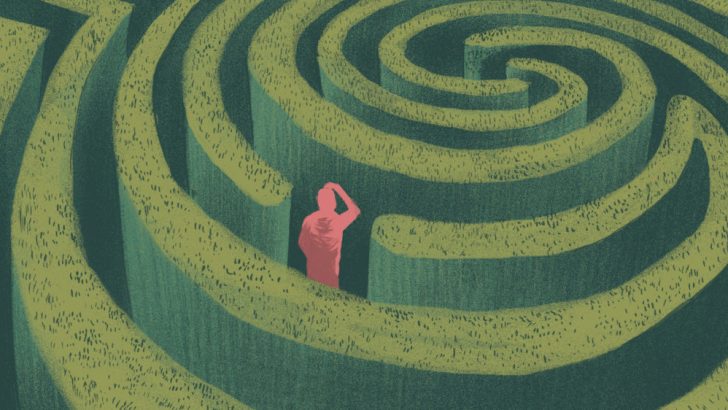The View
At the beginning of Lent we heard the words: “Memento homo, quia pulvis es, et in pulverem reverteris.” Remember, man, that thou art dust, and unto dust thou shalt return. In the two months since then – has it really only been two months? – a tiny virus has brought the world to its knees. Many families have suffered terrible bereavements.
If they have even been able to attend the funeral rites of our religion, they have been denied the comforts and consolations of our national customs surrounding death. Even for those of us whose families have, mercifully, been spared such pain, the coronavirus continues to confront us with the reality of our mortality.
Although Easter is a time in which we express the joy of Jesus’ Resurrection, the condition of the world insists that we contemplate what it is to be mortal and on what are traditionally known as the ‘Four Last Things’: death, judgement, Heaven and Hell.
As Catholics, it is essential to reflect upon them from time to time, if only to remind ourselves that we are not made for this world, and to consider the direction our life is taking. Are we following the easy way leading to the wide gate, or the hard way to the narrow gate? Only one leads to eternal life. There are things worse than death. Perhaps it would be to say there is somewhere worse than death. That place is Hell.
No belief
Now some may say they do not believe in Hell. Others may say they do not believe anyone actually goes to Hell.
Let us recall for a moment at what Jesus himself said about the matter. In the Gospel according to Matthew, Jesus says: “I tell you, on the day of judgement, men will render account for every careless word they utter; for by your words you will be justified, and by your words you will be condemned” (Matt 12:36).
And again: “The Son of man will send his angels, and they will gather out of his kingdom all causes of sin and all evildoers, and throw them into the furnace of fire; there men will weep and gnash their teeth. Then the righteous will shine like the sun in the kingdom of their Father. He who has ears, let him hear” (Matt 13:41).
How many of us, if we have been brought up as Catholics, can truly say that we do not have full knowledge of right and wrong?”
In Mark’s account, Jesus tells us in the most startling terms that it would be better to maim ourselves than to risk being thrown into Hell, where “the fire is not quenched” (Mark 9:43).
The message is clear. No-one who professes belief in Christ can reject the notion of the existence of Hell. To do so is to disbelieve Jesus’ own words and teaching.
While the road to Hell may be paved with good intentions, what propels us along that path is sin, especially mortal sin. Mortal (or grave) sin is sin which cuts us off from God, which extinguishes God’s grace within us.
Specific
It being the case that Hell exists, and it being the case that mortal sin leads us there, what then are the conditions that pertain to mortal sin? How can we know what is mortal sin and what is not? The Church is very specific about this. To be guilty of mortal – as opposed to venial – sin, the following must apply: (1) the sin must be grave, or serious; (2) the person must have freely consented to committing the sin (whether by act or omission) – in other words, he or she must not have been under duress; and (3) the person must have had full knowledge that the act was a mortal sin.
I have been thinking a good deal lately about the last condition. How many of us, if we have been brought up as Catholics, can truly say that we do not have full knowledge of right and wrong? For example, how man, can say they did not know that voting for abortion was gravely wrong? How many can say that they were unaware that (until the obligation was released for the duration of the current crisis) deliberately skipping Mass on Sunday was a mortal sin?
The outside world has rejected the notion of sin, and long since forgotten about it, only referring to it occasionally as a quaint notion swallowed by our gullible and benighted ancestors. But has the Church herself forgotten to inform the Faithful about the dangers of sin?
In the wake of the tragedy of the 2018 referendum on abortion, some good bishops came under intense criticism for daring to suggest that people might consider going to confession if they had voted with the intention of legalising abortion. If such criticism had been in good faith (I doubt that it was), it would have been difficult to understand.
When considering the motivation of a senior clergyman exhorting his flock to repentance, it is necessary to consider the possibility that he may actually believe in the precepts of his religion: precepts like the possibility of souls being condemned to suffer in Hell. Our atheistic establishment class finds this suspension of its own disbelief impossible, but if it possessed a more sophisticated intelligence, it might consider the following options.
On the one hand there is Heaven: a place of refreshing coolness and light, in which the soul gazes upon the face of God. On the other hand there is Hell: a place of eternal torment, in which souls are banished from ever seeing the divine countenance or enjoying any reprieve from just punishments.
These being the two possible ultimate destinations for us all, what is the kinder, the more loving thing to do? Is it to say nothing about the gravity of a person’s actions and allow him to persist in conduct that endangers his soul? Or is it to point out the fact of serious sin (without condemning the person; that is for God alone) in order to spare him from suffering?
The fact that sin often leads to suffering even in this world (as well as the next) only makes the answer more obvious. When a priest of the Catholic Church reminds those under his care of the wages of sin, he is not being judgemental – he is performing an act of charity and mercy.
The role of the priest in providing the Sacrament of Confession is as important as that of a physician”
We may resist the notion, but mortal sin needs to be repented of and confessed in the same way that a life-threatening illness needs to be treated by medical doctors: it is an emergency situation.
During these days, when so many are facing uncertainty – and even death itself – the role of the priest in providing the Sacrament of Confession is as important as that of a physician. The difference is this: while the doctor cannot know for certain if he or she can heal the body, the priest, through administering the sacrament of confession to a repentant sinner, is guaranteed the ability to heal the soul.
If we need it, let us take this spiritual medicine, before it is too late.


 Maria Steen
Maria Steen